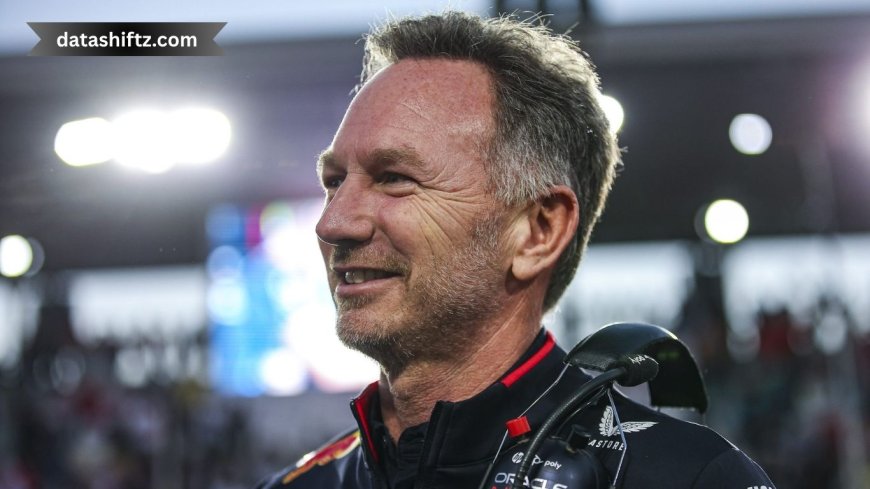Christian Horner: Red Bull’s Architect Navigating Turbulence

In recent days, Christian Horner, the long-standing team principal and CEO of Red Bull Racing, has been at the center of several high-stakes developments. From contract clause revelations to team transitions and strategic realignment, Horner’s leadership is being tested on multiple fronts. Here’s an in-depth look.
Key Headlines
| Date | Headline | Source |
|---|---|---|
| Jul 5, 2025 | Horner confirms Max Verstappen’s performance clause allowing exit if top‑3 by summer break not met | Scottish Sun |
| Jul 5, 2025 | Warns F1 entering a transformational 2026 – largest technical overhaul in 50 years | Reuters |
| Jul 5, 2025 | Prepares Red Bull for life without Verstappen beyond 2026 while investing in long-term engine strategy | The Times |
| Jun 29, 2025 | Admits 2025 championship is looking like a “two‑horse race” due to Red Bull’s early-season struggles | Reuters |
What’s Happening Today?
1. Verstappen’s Contract Clause & Potential Exit
Horner has publicly revealed that Max Verstappen has the option to leave Red Bull if the team doesn’t rank in the top three by the summer break. While acknowledging the clause, Horner emphasized their solid relationship and trust that if performance stabilizes, Verstappen will stay on into 2026.
2. Preparing for 2026's Revolution
F1 is set to undergo its most dramatic change in half a century, with chassis and engine overhauls slated for 2026. Horner understands this is a make‑or‑break moment—not only for Verstappen but for Red Bull itself—as they transition to their own power units after Honda’s departure.
3. Life Without Verstappen?
Though Verstappen is contracted until 2028, Horner stated Red Bull is "planning for a future without Max" while hoping to keep him through at least 2026. In tandem, Mercedes has been scouting Verstappen’s management, stirring speculation about a possible switch .
4. Mid‑Season Performance Evaluation
After a series of setbacks—including Verstappen’s early DNF in Austria—Horner admitted the title chase looks increasingly like a McLaren vs. Red Bull duel. But rather than panicking, he’s refocusing on incremental development and resilience.
Main Focus Areas
-
Performance under Pressure
Despite being third in the championship, Red Bull remains optimistic. Horner reinforced the team’s depth and past success, stating, “we haven’t suddenly become idiots overnight”. -
Engineering Overhaul & Team Restructure
Red Bull is transitioning away from Honda’s engine to an in-house power unit. Honest assessments are being made on personnel changes—major contributions of Adrian Newey and Jonathan Wheatley have been acknowledged, even as leadership transitions are underway. -
Team‑Wide Depth
Credibility is being reinforced internally. Horner’s insistence that Red Bull is "evolving, not rebuilding" signals continuity—even after high-profile departures.
What It Means for Red Bull
-
Strategic Gamble on 2026
Preparing a new engine and revamping chassis simultaneously is ambitious. Success in this gamble could position Red Bull dominantly for the next F1 era—but delays could open the door for rivals like Mercedes or Ferrari. -
Verstappen’s Future Still Central
Though a contract exists until 2028, clauses and performance variables mean Verstappen’s future remains a negotiation point. A departure would force Red Bull into talent succession planning. -
Shifting the Leadership Narrative
With Horner guiding this transitional phase, his own leadership is both crucial and under scrutiny. How he steers the team through technical upheaval will define his legacy.
Top Takeaways
-
Horner is open about risk, acknowledging both Verstappen’s exit clause and the team’s architectural overhaul.
-
The 2026 regulation reset is a critical juncture—not just for Verstappen, but for Red Bull’s long-term competitiveness.
-
He is reinforcing team stability amid structural changes and shifting dynamics, signaling trust in his leadership and technical hierarchy.
Quick Recap
In brief:
Christian Horner is navigating multiple pressures—performance, personnel, and future direction. With Verstappen's contract clause exposed, 2026's technical revolution approaching, and speculation swirl around his own position, Horner is playing both storyteller and steady hand to keep Red Bull on top—or climb back there.
What to Watch Next
-
Summer Break (Aug 2025): Will Verstappen and the team meet Top‑3 performance?
-
2026 Technical Launch: How will Red Bull’s in-house engine perform relative to Mercedes and Ferrari?
-
Driver Retention & Succession Plans: What options lie ahead if Verstappen departs?
Why It Matters
In Formula 1, transition years like 2026 change competitive landscapes radically. Leaders like Christian Horner—who blend vision, pragmatism, and strategic flexibility—are pivotal in defining whether a powerhouse stays on top or loses its grip. For fans, sponsors, and the sport’s future, how Horner responds today will echo for years.
Recent Christian Horner Moves (Last Week)
-
Confirmed Verstappen’s exit clause if bottom three by summer break
-
Warned about 2026’s transformative regulations
-
Publicly said Red Bull is planning "with and without Verstappen beyond 2026"
-
Acknowledged Red Bull’s early‑season struggle and McLaren dominance
Conclusion: Horner’s Critical Moment in Formula 1
Christian Horner stands at a decisive crossroads in his career and Red Bull Racing's trajectory. With Max Verstappen’s future hanging in the balance, and a seismic shift in technical regulations approaching in 2026, Horner must lead with both strategic foresight and firm execution.
Despite media pressure and on-track challenges, Horner’s steady communication and transparent leadership have helped maintain stability within the Red Bull camp. However, the coming months will test his ability to balance short-term performance with long-term innovation.






























